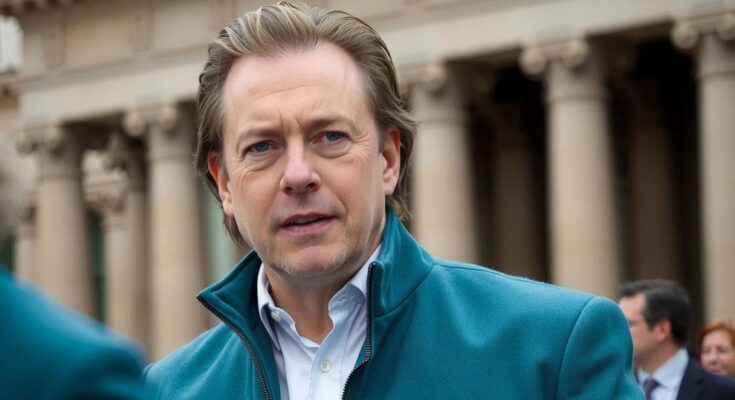Officials in Berlin have accused Elon Musk of attempting to influence Germany’s federal election by endorsing the Alternative for Germany (AfD) party. Remarks by government representatives highlight concerns over Musk’s social media activity and an opinion piece in the Welt am Sonntag newspaper. Political leaders have criticized his interference, while Musk defends his stance on the party’s policies regarding taxes and business regulation.
In recent developments, billionaire Elon Musk has come under scrutiny from German officials who assert that he is attempting to sway the upcoming federal election scheduled for February 23rd. A spokesperson for the government highlighted concerns regarding Musk’s impact, particularly emphasizing that he has expressed support for the right-wing Alternative for Germany (AfD) party through social media posts and an opinion piece published in the Welt am Sonntag newspaper. While acknowledging Musk’s right to articulate his views, the spokesperson remarked, “After all, freedom of opinion also covers the greatest nonsense.”
The German political landscape is tense following the collapse of Chancellor Olaf Scholz’s coalition government that has prompted early elections. In his opinion piece, Musk posited that only the AfD can salvage the nation, aligning himself with the party’s policies on taxation and regulation. The editor of the opinion section of the Welt am Sonntag has since announced her resignation, reflecting the controversy surrounding Musk’s endorsements.
Friedrich Merz, leader of the opposition Christian Democrats, expressed deep concerns regarding Musk’s influence, stating, “I cannot recall a comparable case of interference, in the history of Western democracies, in the election campaign of a friendly country.” On the other hand, Saskia Esken, co-leader for the Social Democrats, underscored the need to protect democratic processes from external and affluent interference, asserting, “In Elon Musk’s world, democracy and workers’ rights are obstacles to more profit. We say quite clearly: Our democracy is defensible and it cannot be bought.” Musk’s previous comments regarding the AfD, where he indicated that their policies are mischaracterized as extremist, adds layers to this unfolding narrative.
The tension arises in the context of Germany facing significant political shifts, particularly following the collapse of a governing coalition. With the election set for February 23, 2024, the interactions between influential figures like Musk and political parties can have considerable implications. The Alternative for Germany party, often labeled as far-right, presents a controversial position within German politics, which has elicited diverse reactions from various political leaders. The concerns raised by officials about foreign influence reflect broader worries over the integrity of democratic processes, especially in an era characterized by the pervasive nature of social media.
Elon Musk’s involvement in German politics has sparked intense debate surrounding the integrity of democratic elections. Government officials have raised alarms over his perceived influence in favor of the far-right AfD party, culminating in significant political backlash. Figures from both the ruling Social Democrats and the opposition have deemed Musk’s interventions inappropriate, advocating for the sanctity of the electoral process against undue influence. As Germany approaches its elections, the ramifications of Musk’s statements will undoubtedly be closely scrutinized.
Original Source: www.audacy.com




